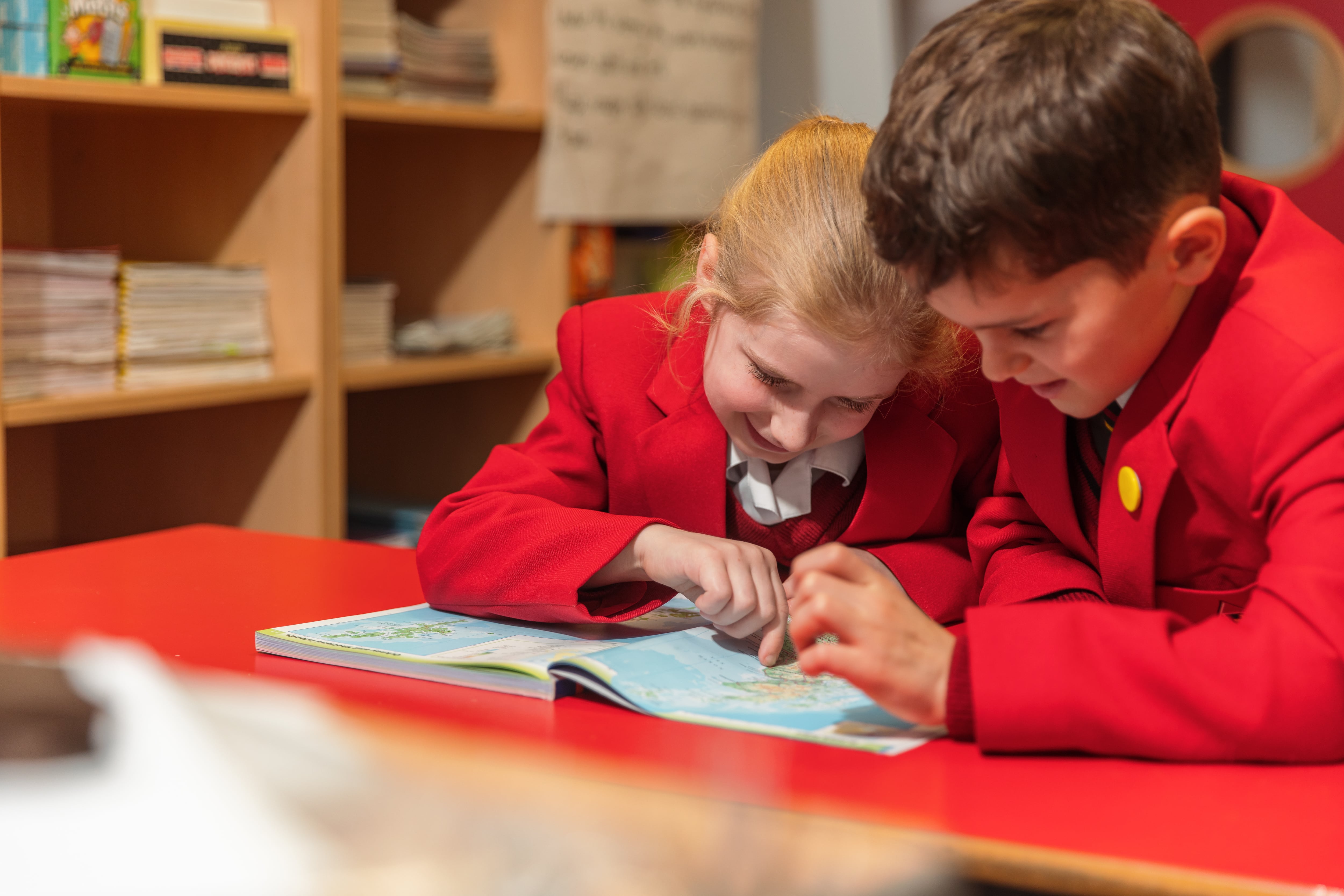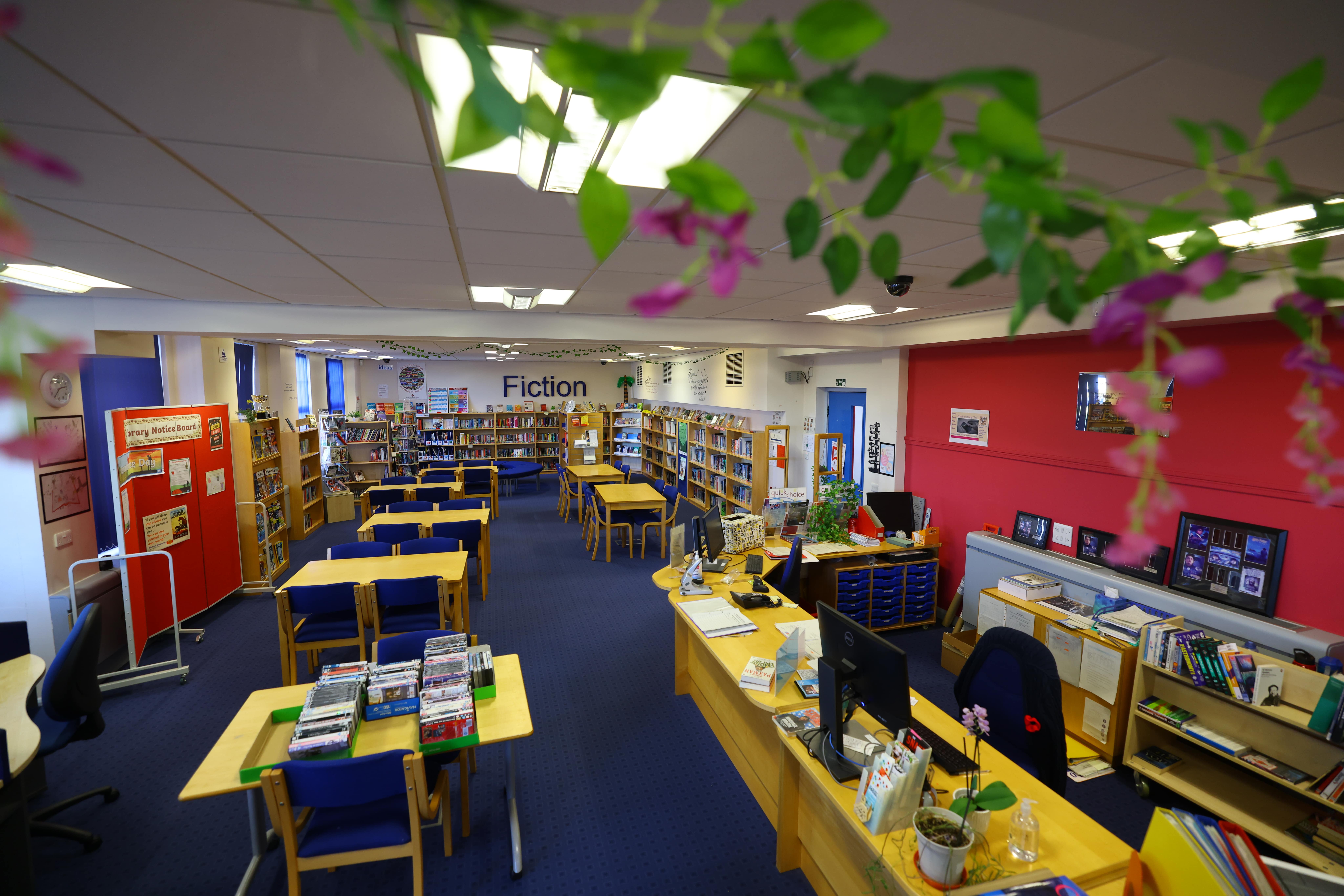Encouraging reading for pleasure amongst young people: Why it’s crucial and how schools can help

Library manager Sarah Huck, from Dame Allan’s Schools in Newcastle, comments on research findings revealing a decline in children reading for pleasure and provides actionable strategies for schools to foster a love for reading.
A recent report by the National Literacy Trust (NLT) highlights an alarming trend: the percentage of children who read for pleasure has hit a record low since 2005. Only one in three (34.6%) of young people aged 8 to 18 reported enjoying reading in their free time in 2024, representing a nearly 9% decline compared to the previous year.
The challenge: competing with technology
The widespread use of smartphones, gaming, streaming services, and social media has affected children's attention spans. Many young people are not building the habit of sitting with a book and immersing themselves in a story.
As parents are often working such long hours, I can completely understand the temptation to end the day with Netflix, or with a game on the iPad. However, if children aren’t in the mindset that books are a fun and rewarding option, it means they’ll struggle in the future to engage with reading as a pleasurable pursuit.
Why reading for pleasure matters
Reading can foster resilience and curiosity. Getting in the habit of reading a new book teaches young people to engage with a story mindfully and allow the narrative to unfold. If children don’t establish a positive relationship with books early, they may struggle to enjoy reading as a pastime later in life.
Simple ways to foster a love for reading
Starting young is key. Just ten minutes of storytime before bed can ignite an early interest in books and highlight the comfort and joy of reading. Schools can help by making reading for pleasure a regular part of the school routine, separate from academic assignments.
How Dame Allan’s Schools promotes reading
At Dame Allan’s Schools, Junior School pupils from Nursery onwards have scheduled library sessions, giving them a chance to choose and enjoy books independently and begin to build familiarity with the library environment. Senior School pupils in Year 7 participate in weekly ‘Library Lessons’, which include quiet reading and themed activities, such as exploring books related to historical events, or books exploring feminism.
The library stocks a variety of reading materials—including manga, e-books, and magazines—to ensure that pupils can find what interests them. Books specially designed for pupils with additional needs, like dyslexia, help broaden access. The addition of different formats and genres means that we can hopefully appeal to a wider range of pupils; particularly boys, who have seen the biggest dip in those reading for pleasure in their spare time, with less than a third doing so according to the NLT report.
Cross-curricular connections
We encourage cross-curricular collaboration between the library and other departments too. For example, every year our Year 12 biology students are asked to produce a book review on a biology-themed book of their choosing, which sees them come and explore the library for some time – it is great to see! We also worked with our outdoor education team, who had the idea of theming an expedition around a popular adventure book series, Wolf Brother by Michelle Paver. They all received copies of the book to take on the trip to read by the campfire and keep as a memento of the experience.
Engaging volunteering opportunities
One of the lovely ways we have also diversified the library is by opening it up to pupils taking part in the Duke of Edinburgh programme. They can complete their volunteering requirements by becoming a library volunteer, which is a three or six-month commitment. Often, the pupils who choose to do this might not be voracious readers when they first come in, but you do see them getting more comfortable and checking out the books. If we can encourage just a handful of these children to take up reading in their spare time, it will be worth it.
Making the library a school hub
Hosting events and activities in the library—such as chess tournaments, quizzes, debates, and drama workshops—attracts more visitors. And, if they happen to stumble upon a book, even better!
Encouraging reading for pleasure is essential for developing lifelong learners and enthusiastic readers. With these strategies, schools can help cultivate a love for books that will benefit pupils far beyond their school years.


